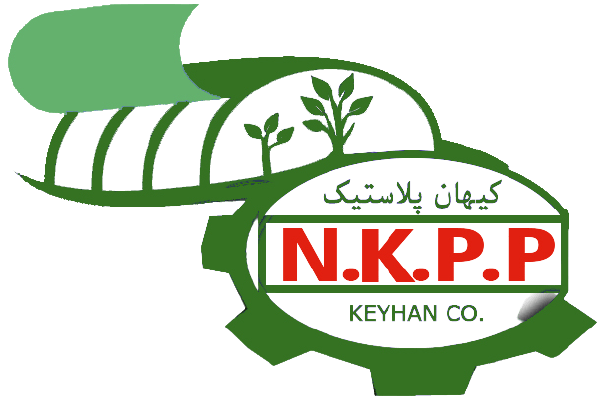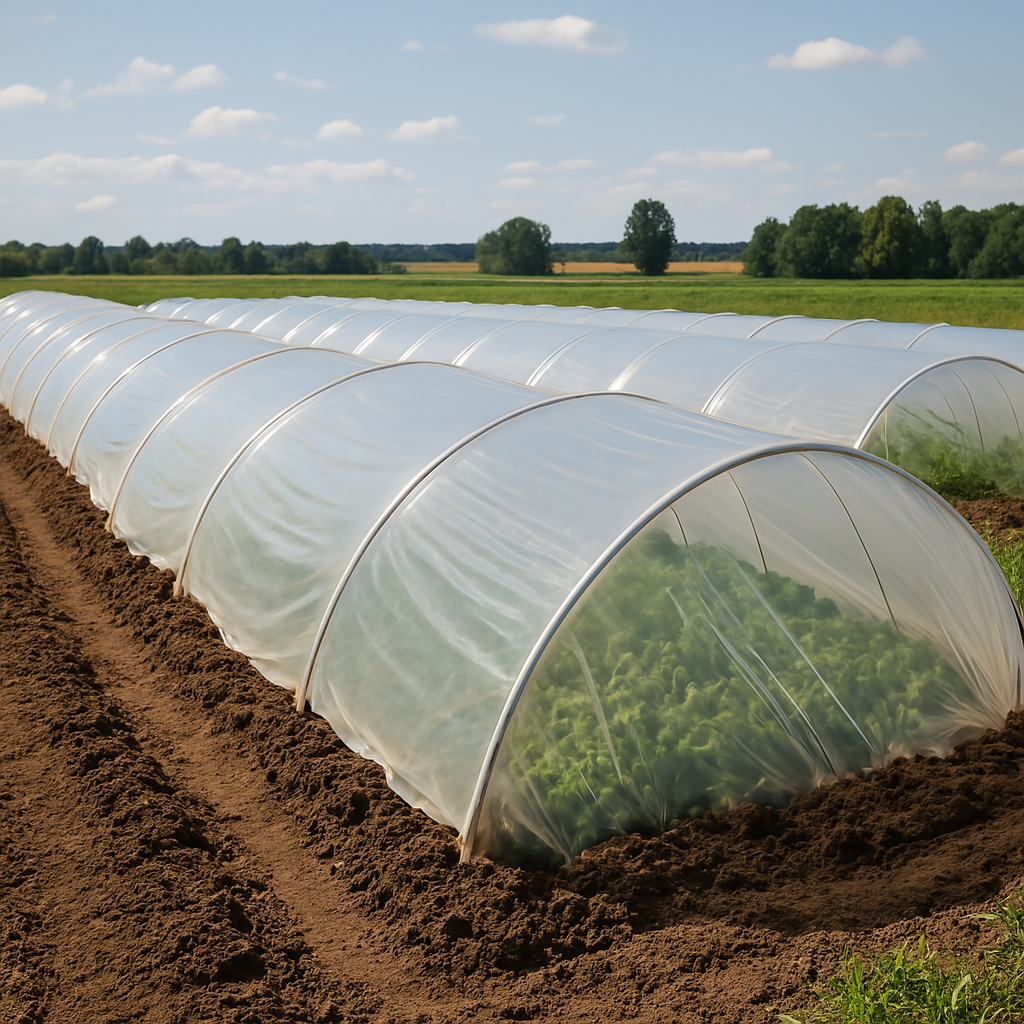Discover the transformative power of our premium agricultural tunnel plastics, designed to elevate your farming experience. With exceptional UV resistance and durability, these tunnel plastics safeguard your crops against harsh weather conditions while promoting optimal growth. Their unique thermal properties regulate temperature and humidity, creating a stable environment that leads to faster maturation and higher yields. Lightweight yet robust, our products are easy to install and maintain, making them a perfect solution for both greenhouse and open-field applications. Elevate your agricultural productivity and secure a brighter future for your crops with our innovative tunnel plastics—where sustainability meets exceptional quality.
What is Tunnel Plastic?
Tunnel plastic is a type of lightweight, flexible polyethylene agricultural nylon or film used to cover tunnel-shaped structures in agricultural fields. These plastics typically have high light transmission properties, UV resistance, and adequate mechanical strength. The thickness of these films usually ranges from 50 to 200 microns and is selected based on the climatic conditions and the type of crop.
Applications of Tunnel Plastic
-
Covering simple and semi-stable tunnels to protect plants from cold, rain, and wind.
-
Cultivating early or late seasonal crops, such as strawberries, cucumbers, tomatoes, and vegetables.
-
Increasing productivity in small to medium-sized greenhouses.
-
Protecting seedlings and sensitive plants during the early growth stages.
Benefits of Tunnel Plastic
Tunnel plastics have specific characteristics that improve plant growth conditions and reduce agricultural costs. One of these features is temperature control. These plastics prevent heat loss at night, increase the internal temperature of the tunnel, and protect plants from frost. Additionally, tunnel plastics prevent excessive soil moisture evaporation, reducing the need for irrigation and saving water. Moreover, these plastics allow effective light transmission and reduce harmful UV rays, which enhances photosynthesis and promotes plant growth.
Another benefit is the reduction in pesticide use. These plastics prevent insects from entering the tunnel, reducing the need for pesticides, which lowers production costs and helps maintain environmental health. Furthermore, these plastics have good mechanical resistance and can withstand strong winds and heavy rain. Finally, by reducing plant growth time, tunnel plastics lower production costs and contribute to savings in fertilizers, water, and labor.
Features of Tunnel Plastic
Tunnel plastics are specifically designed for agricultural use and have features that make them highly efficient for various types of crops. These features include:
-
UV Resistance: Tunnel plastics are resistant to harmful sun rays by adding UV-resistant materials, increasing their lifespan. This feature effectively protects crops from harmful radiation.
-
Temperature and Humidity Control: Tunnel plastics are designed to effectively control the internal temperature of the tunnel. They prevent the escape of nighttime heat while also preventing excessive moisture evaporation from the soil, promoting plant growth and reducing the need for irrigation.
-
Anti-fog: Some tunnel plastics feature anti-fog properties that prevent water droplets from forming on the inner surface of the plastic. This prevents excessive moisture on plants, reducing the risk of fungal diseases.
-
Light Diffusion: Tunnel plastics with light diffusion properties allow sunlight to spread evenly throughout the tunnel. This helps plants receive adequate light, optimizing photosynthesis.
-
High Resistance to Environmental Conditions: These plastics can withstand wind, rain, and other weather conditions, preventing damage from severe weather changes and helping to maintain plant health.
-
Mechanical Resistance: Tunnel plastics are generally highly resistant to tears and mechanical damage, making them durable against sharp objects or other hazards.
-
High Tensile Strength: Tunnel plastics have high tensile strength, enabling them to resist tension and various pressures without tearing or getting damaged.
-
Anti-dust: This feature helps keep the plastic surface clean and prevents dust and pollution from accumulating, improving light conditions and plant health.
-
Ease of Installation and Use: Installing tunnel plastics is relatively simple and does not require specialized skills. Additionally, they are easy to use and maintain.
Maintenance and Proper Use
-
Installing the plastic correctly and without excessive tension increases its lifespan.
-
Prevent direct contact with sharp edges or hot metals.
-
Use special clips to secure the plastic to the structure.
-
At the end of the season, the plastic should be collected and recycled to prevent environmental pollution.
Important Considerations for Choosing Plastic Tunnel
-
Climatic Conditions: In windy areas or regions with intense sun exposure, high-resistance films with UV additives should be used.
-
Type of Crop: Some crops require specific light or temperature conditions, which determine the type of plastic needed.
-
Usage Duration: If the plastic is used for several seasons, it should have higher quality and thickness.
-
Environmental Compatibility: Recyclable or biodegradable plastics are better choices for sustainable agriculture.
Conclusion
Tunnel plastic stands out as an intelligent and cost-effective tool for optimizing agricultural crop cultivation. This type of cover improves plant growth conditions, increases yields, reduces resource consumption, and mitigates environmental risks. By helping farmers achieve greater productivity at lower costs, the proper selection and use of tunnel plastics are key to success in modern and sustainable agriculture. Embrace the future of farming today and watch your crops flourish like never before!




